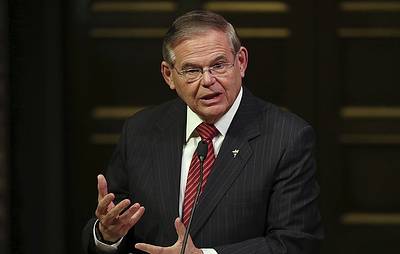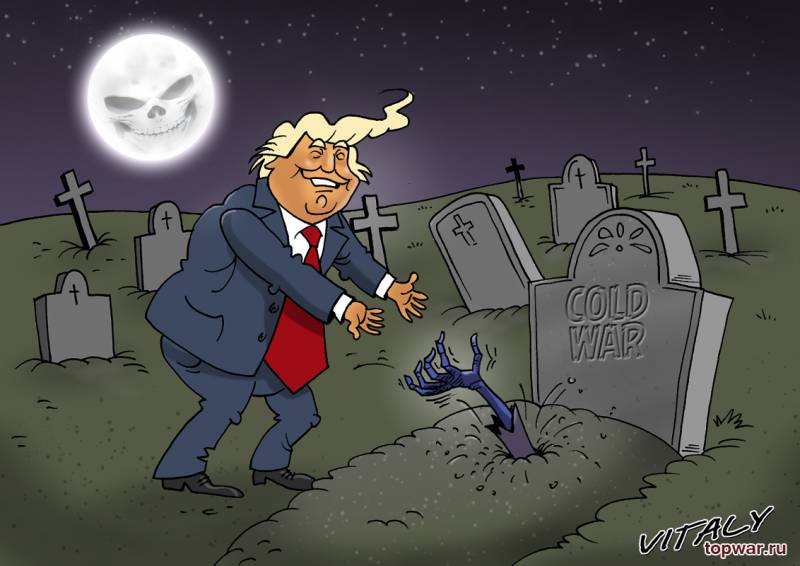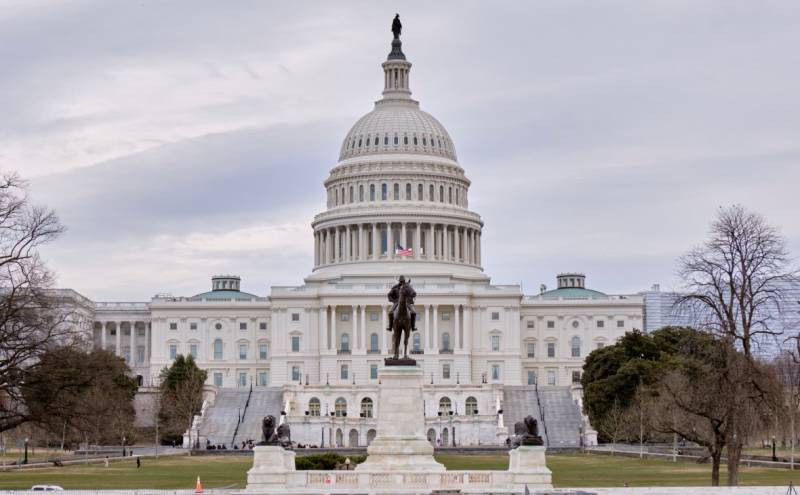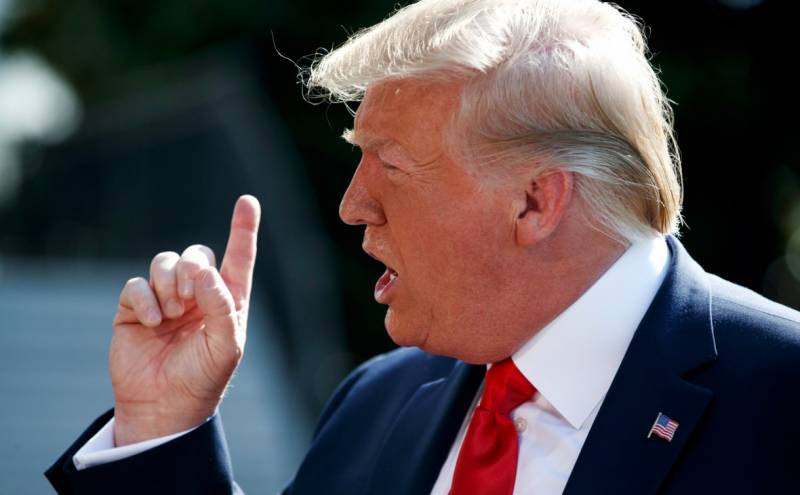Why did the American Democrats decide to oppose the US withdrawal from START-3?
Letter of the democrats
US Secretary of State Mike Pompeo received a letter from two prominent representatives of the US Democratic Party. Eliot Engel, Chairman of the Foreign Affairs Committee of the House of Representatives of the United States Congress, and Robert Menendez, Senior Senate Foreign Affairs Committee of the US Senate, explained in a letter the need to extend START-3. Democrats believe that the State Department should make every effort to ensure that this important agreement was extended.
Both Menendez and Engel are difficult to suspect of sympathy for Russia. But in the letter, politicians emphasize the importance of the START-3 Treaty for strategic stability in relations between the two leading powers of our time. Deputies are concerned that Presidential Administration Donald Trump has provided very limited information regarding his plans for the future of START-3.
 In addition, Menendez (pictured) and Engel are also worried by the fact that in the modern composition of the US State Department there are no officials approved by the Senate responsible for negotiations in the field of nuclear weapons. There is also no post of assistant secretary of state for arms control, verification and compliance with agreements, which would also be approved by the Senate.
In addition, Menendez (pictured) and Engel are also worried by the fact that in the modern composition of the US State Department there are no officials approved by the Senate responsible for negotiations in the field of nuclear weapons. There is also no post of assistant secretary of state for arms control, verification and compliance with agreements, which would also be approved by the Senate.Thus, the US Department of State does not pay due attention to the issue of further maintaining agreements with Russia on the control of strategic offensive weapons. And in this, the American Democrats see very serious risks for the United States and the global political situation as a whole. Trump’s decision to reformat the current agreements also arouses great concern among the Democrats, since it is not known whether Washington will be able to conclude a new agreement not only with Moscow, but also with Beijing (as Trump plans to do).
Will START-3 extend?
In August 2019, the Donald Trump administration expressed a desire to transform the Strategic Offensive Arms Reduction and Limitation Treaty (START-3) from bilateral to multilateral. This desire is connected with the fact that in recent years China has become a serious world power, its military potential is constantly growing, and in the United States they see in China no less, if not more, threat than in Russia.
Donald Trump expects that the new contract should be signed not only by the USA and Russia, but also by China. Behind the usual demagogy about the need to reduce and gradually abandon nuclear weapons the desire of the American elite to protect the United States from the risks of a clash with China lies. But this desire is issued for the good idea of reducing nuclear weapons and related threats around the world.
Trump himself has repeatedly criticized START-3, calling the treaty a “one-sided” deal and urging it to withdraw from it, since it does not give the United States any advantages. A number of prominent representatives of the American elite share the same position. At the same time, the letter of the congressman and senator indicates that the US leadership does not have a unified point of view on this issue.
For example, criticism of the withdrawal from START-3 was made by US Air Force General John Heiten, who took the post of deputy chairman of the Joint Chiefs of Staff. True, not all share this position among high-ranking military men. Another thing is the US Democratic Party.
In the context of the Trump-initiated impeachment process, it is very important for party leaders to focus on miscalculations of the incumbent’s foreign policy. And in this case, not the extension of the START-3 treaty becomes an excellent reason to accuse Donald Trump of creating new risks for the American state, of neglecting national security issues. Of course, the Democrats simply could not help but take advantage of such a chic occasion to once again prick Trump as the president’s position regarding the extension of the START-3 treaty.
US-START 3 Disputes
At the same time, the concern of the representatives of the Democratic Party is indeed not without certain grounds. In recent years, the United States has significantly “launched” its foreign policy. The leadership of the State Department does not pay serious attention to the formation of a full-fledged personnel reserve, including nuclear weapons specialists.
But, on the other hand, if Washington is not configured to maintain agreements with Russia, then the presence or absence of experts on this issue is not any significant obstacle to the implementation of Trump's foreign policy.
Moreover, in the USA there has never been a shortage of analytical centers and scientific organizations that study the problems of the nuclear arms race. That is, there are enough specialists, but many of them are set up in the same way as Trump, being supporters of the United States withdrawing from existing agreements.
Many American political scientists, specialists in Russia and military experts who form the “hawk lot” speak out against the extension of the treaty. For example, John Bolton, who recently resigned as president’s national security adviser, noted that START-3 does not take into account the latest Russian developments and the very fact of the presence of short-range tactical nuclear weapons. And many American experts agree with his position.
Therefore, there is no doubt that START-3, especially if there is consensus in the American leadership, may well repeat the fate of the Treaty on the Elimination of Intermediate-Range and Shorter-Range Missiles, in which the United States terminated at the beginning of the 2019 year. Indeed, both the INF Treaty and the START-3 limit the ability of the American side to build up arms, but at the same time do not include China, which is the main reason for Washington’s fears.
In turn, Beijing does not want to be constrained by contractual obligations, especially against the backdrop of a rather aggressive US policy in the Asia-Pacific region. But if China does not sign the treaty, then for Washington the continued existence of START-3 loses all meaning. Naturally, upon termination of the contract Russia will be blamed, as was already the case with the INF Treaty. Therefore, American representatives are probing the soil, constantly noting that Russia is developing the latest weapons, supposedly threatening the security of the American state.
The arms race could be one way for the United States to maintain dominance in world politics. Given the economic opportunities of the United States, the Trump administration expects Washington to win the race with Russia and China. Therefore, a way out of all existing agreements on arms limitation fully fits into the general thrust of American foreign policy and perfectly correlates with Trump's other actions.
The very proposal to attract China to START-3 indicates that Washington does not plan to maintain the agreement, since it is clear that Beijing will not agree to sign a new deal. If suddenly China would agree to the proposal of the American side, then this would be a good result for Trump. The incumbent president would imagine what was happening as a global foreign policy victory for his administration, would enter history as the person who forced Russia and China to sign an arms reduction treaty.
Russia's reaction to a possible exit from START-3
Moscow does not approve of the position of the Trump administration, aimed at refusing to extend the agreements. No wonder Vladimir Putin called the START-3 the last remaining document limiting the arms race in the modern world. In an interview with RT Arabic, Sky News Arabia and Al Arabiya, Vladimir Putin drew attention to the fact that if START-3 was not extended, then there would be no tools left in the world that could prevent the buildup of offensive weapons.
According to the Russian president, the world is becoming increasingly complex and dangerous. And this is true - the weapons are developing, the military potential of states is growing, therefore START-3 allowed at least control the situation. After its abolition, the United States and Russia will not be even more intense than before to resume the arms race.
Other risks are also worth noting. If fifty years ago only the USSR and the United States possessed truly dangerous military potential for the world, today the capabilities of other states have grown. And even not so much with the confrontation between Russia and the USA, or China and the USA, the main risks of the nuclear arms race are connected, but with the buildup of nuclear power by other countries.
India and Pakistan are rapidly increasing their nuclear power, as well as conventional weapons, and this is a very dangerous trend. After all, India and Pakistan are not just nuclear powers. They are in a state of very long smoldering conflict, which periodically “revives” and takes the form of Indo-Pakistani wars.
Both India and Pakistan have strong nationalist sentiments, and their foreign policy towards each other is characterized by increased aggressiveness. Recently, Pakistani Prime Minister Imran Khan, speaking at the UN, openly stated that in the event of a large-scale armed conflict with India, his country, which, they say, is seven times smaller than India, will have no choice but to use nuclear weapons.
Therefore, the presence of nuclear weapons in both states is in itself a great danger, and against the backdrop of the US refusal to extend START-3, both India, Pakistan and China will consider this position of Washington as evidence of the beginning of a new arms race.
If the United States or Russia tries to exhort them, the termination of START-3 will always be an iron argument: they say how you can exhort other countries if you yourself could not agree among themselves and extend the treaty.
Of course, Washington is well aware of all the international risks associated with the fate of START-3. But American politicians and Trump are primarily characterized by a belief in the more substantial capabilities of the United States to influence the current situation. These ambitions do not allow American politicians to soberly assess all the advantages of START-3 and imagine that suddenly the dominant role in the United States will be seized - whether Russia, China, or some other countries, does not matter.
- P P 'SЊSЏ RџRѕR "RѕRЅSЃRєRёR№
- rbc.ru, iz.ru



Information